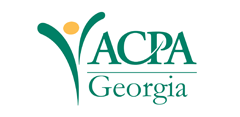Abstract
The purpose of this study was to determine predictors of community college student academic success in corequisite English and mathematics courses. Academic success was defined dichotomously on a pass or fail basis. The population included 1,934 students enrolled in at least one corequisite English and/or mathematics course at a community college between the fall semester of 2015 and summer semester of 2018. Binary logistic regression was used to examine the fol- lowing predictors: a student’s sex, race, age at time of enrollment, Pell Grant recipient status, first-generation college student status, high school grade point average (HSGPA), placement test scores, academic major, time spent receiving academic tutoring; and corequisite course faculty employment status. The two strongest predictors of student academic success in corequisite English courses were: (1) HSGPA and (2) being female. The three strongest predictors of student academic success in corequisite mathematics courses were: (1) HSGPA, (2) corequisite course faculty employment status, and (3) mathematics course based on major. The strongest predictor in both logistic regression analyses was HSGPA. It is recommended that educational leaders use HSGPA as a metric for placing students in the corequisite model. Additionally, it is recommended that institutions continue to invest in faculty professional development opportunities as it relates to teaching students who are non-female, minority, economically-disadvantaged, or first-generation.
First Page
20
Last Page
42
Copyright Statement / License for Reuse

This work is licensed under a Creative Commons Attribution-Noncommercial-No Derivative Works 4.0 License.
Recommended Citation
Andrews, D., & Tolman, S. (2021). Predictors of student academic success in the corequisite model. Journal of Higher Education & Student Affairs, 37(2), 20-42. https://doi.org/10.20429/gcpa.2021.370203
Supplemental Reference List with DOIs

